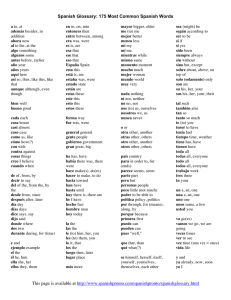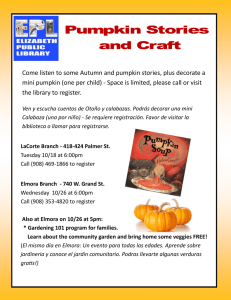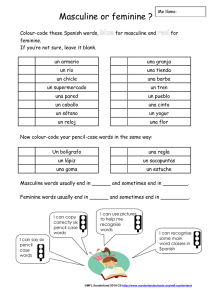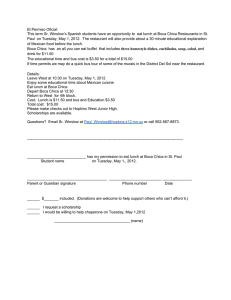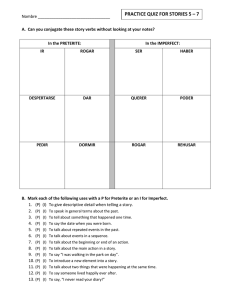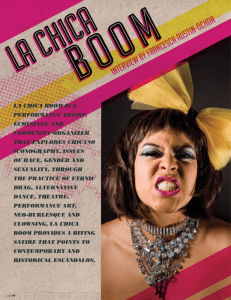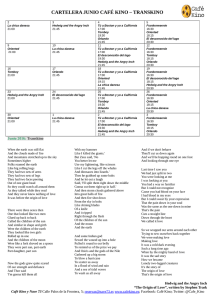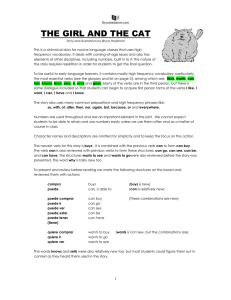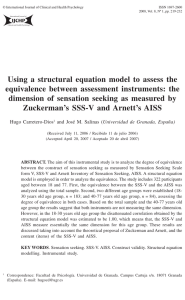Trabajo de Verano Sexto Grado
Anuncio
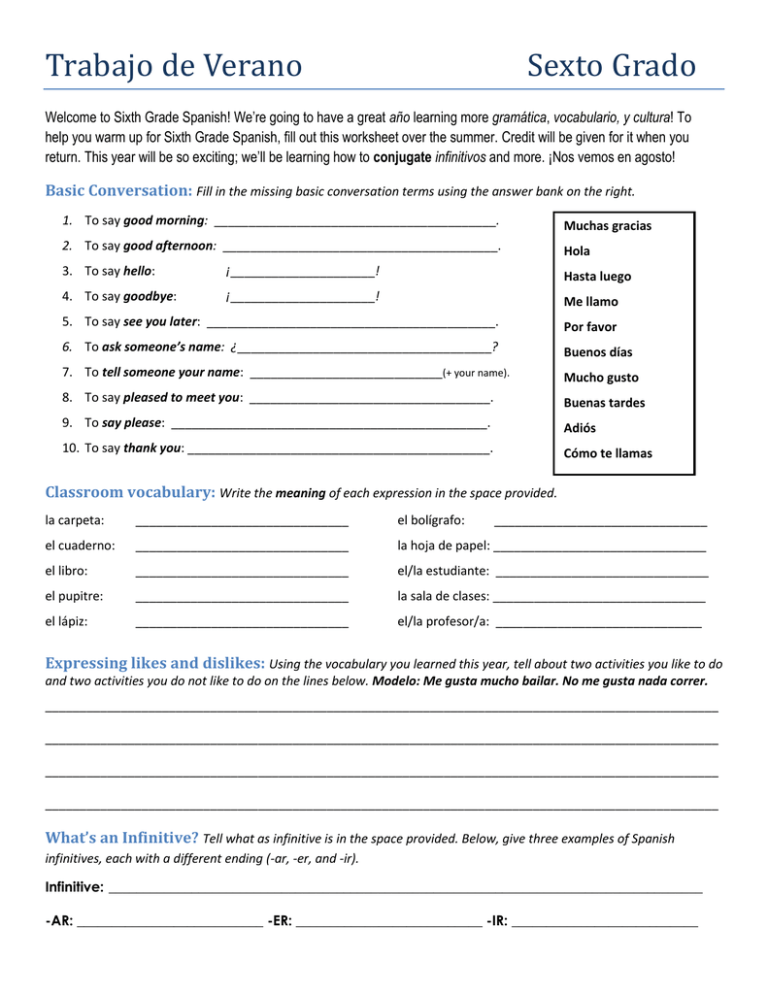
Trabajo de Verano Sexto Grado Welcome to Sixth Grade Spanish! We’re going to have a great año learning more gramática, vocabulario, y cultura! To help you warm up for Sixth Grade Spanish, fill out this worksheet over the summer. Credit will be given for it when you return. This year will be so exciting; we’ll be learning how to conjugate infinitivos and more. ¡Nos vemos en agosto! Basic Conversation: Fill in the missing basic conversation terms using the answer bank on the right. 1. To say good morning: _________________________________________. Muchas gracias 2. To say good afternoon: ________________________________________. Hola 3. To say hello: ¡_____________________! Hasta luego 4. To say goodbye: ¡_____________________! Me llamo 5. To say see you later: __________________________________________. Por favor 6. To ask someone’s name: ¿_____________________________________? Buenos días 7. To tell someone your name: ____________________________(+ your name). Mucho gusto 8. To say pleased to meet you: ___________________________________. Buenas tardes 9. To say please: ______________________________________________. Adiós 10. To say thank you: ____________________________________________. Cómo te llamas Classroom vocabulary: Write the meaning of each expression in the space provided. la carpeta: _______________________________ el bolígrafo: _______________________________ el cuaderno: _______________________________ la hoja de papel: _______________________________ el libro: _______________________________ el/la estudiante: _______________________________ el pupitre: _______________________________ la sala de clases: _______________________________ el lápiz: _______________________________ el/la profesor/a: ______________________________ Expressing likes and dislikes: Using the vocabulary you learned this year, tell about two activities you like to do and two activities you do not like to do on the lines below. Modelo: Me gusta mucho bailar. No me gusta nada correr. __________________________________________________________________________________________________ __________________________________________________________________________________________________ __________________________________________________________________________________________________ __________________________________________________________________________________________________ What’s an Infinitive? Tell what as infinitive is in the space provided. Below, give three examples of Spanish infinitives, each with a different ending (-ar, -er, and -ir). Infinitive: ______________________________________________________________________________________ -AR: ___________________________ -ER: ___________________________ -IR: ___________________________ Gender and Adjective Agreement: Choose the correct adjective to end each sentence, ensuring that your answer agrees in gender with the person being described. La profesora es (trabajador / trabajadora). El profesor es (talentoso / talentosa) El chico es (serio / seria) La chica es (atlético / atlética). La estudiante es (estudioso / estudiosa) Pablo es (ordenado, ordenada). Mi amiga María es (gracioso / graciosa). Describing yourself: Using the vocabulary you learned this past year, write a few sentences on the lines below describing your own personality and the personality of a friend or family member. Modelo: Yo soy simpática. Mi amigo Pablo es simpatico. __________________________________________________________________________________________________ __________________________________________________________________________________________________ __________________________________________________________________________________________________ Subjects and Verbs in Sentences: Underline the subject and circle the verb in each sentence below. Yo soy un chico atrevido. Tú eres una amiga muy buena. Ella es una chica inteligente. El Sr. Wiley es un profesor simpático. Marta es una chica deportista. Paco es un estudiante trabajador. Word Order in Sentences: Unscramble the following sentences by numbering the elements, following the word order we learned about at the end of this year: Subject, (no) verb, indefinite article, noun, (muy) adjective. 1. chica / Teresa / es / inteligente / una 2. es / simpática / profesora / La Sra. Braeuner / una 3. desordenada / una / Tú / chica / no / eres 4. muy / es / paciente / un / Gustavo / chico
